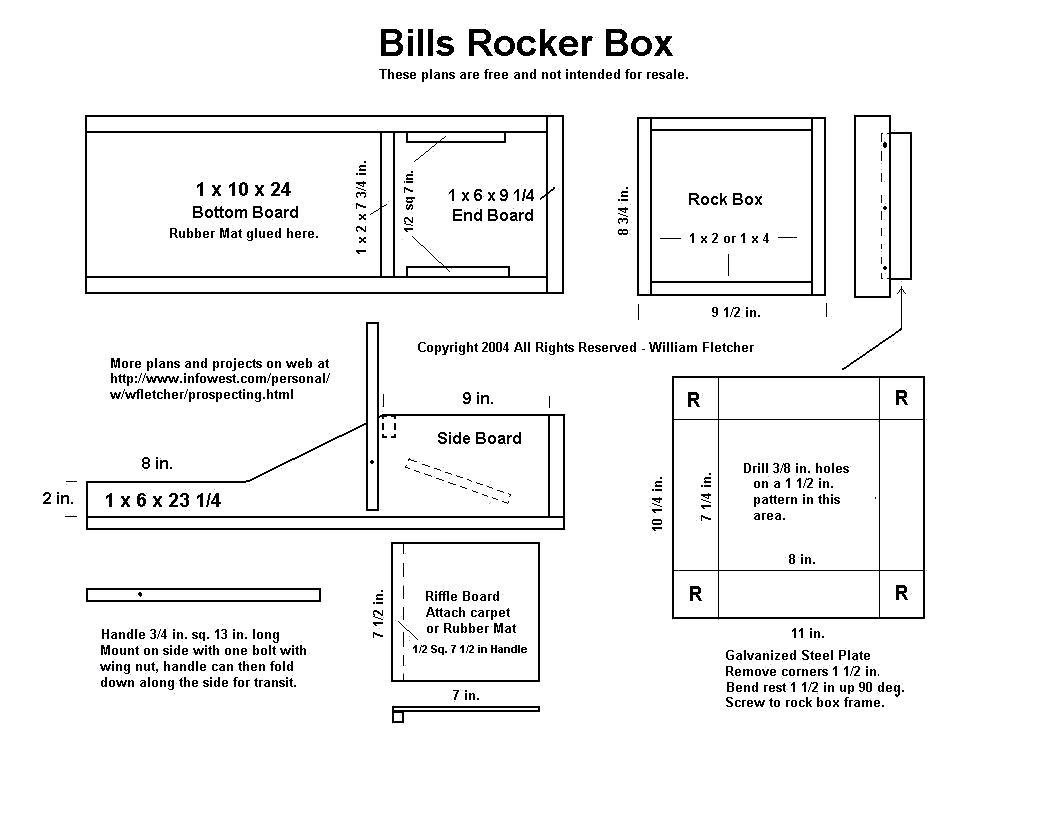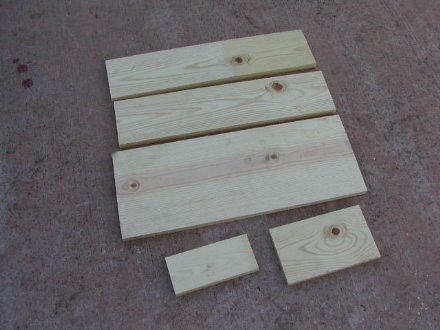 |
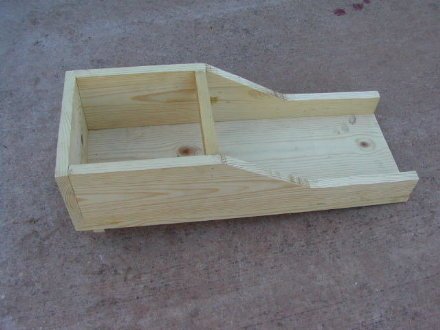 |
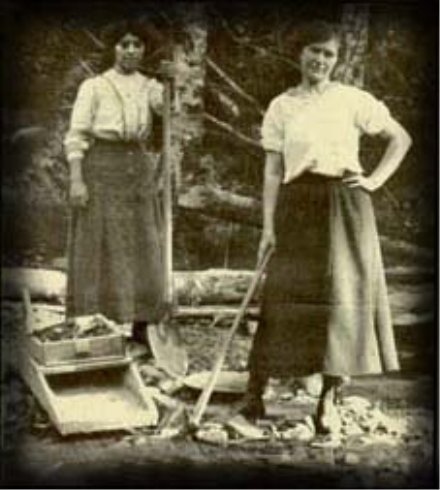
It all began with some spare boards I had laying around and an idea
I've
had for some time.
I've always wanted to build and try out a small rocker box.
Rocker
boxes have a sort of a
romantic nostalgic lure about them. Whenever I think of gold
prospecting
the 1800's rocker
boxes come to mind. So here is the start of a simple little wood
rocker.
I know they could
never compare to the new powered and efficient equipment of today. If I
wanted speed and
ease of operation I'd only use my trommel. It does everything but fill
its own hopper, material
in, gold out. This project is just a trip back in time when things
moved
at a slower pace. It may
take a few days to build as I engineer it as I go. I mainly want to
keep
it a simple design and
if it appears to work well I will have free plans available soon.
That's another reason to build
one, the plans, no easy ones available. I looked at a couple on the web
but they were so hard
to read and understand I thought I'd just start from scratch. Using
widely
available boards and
post photos worth a thousand words. Then throw in a set of easy to
understand
plans to boot.
 |
 |
This is how it started out some spare boards which quickly became a
rocker
box frame.
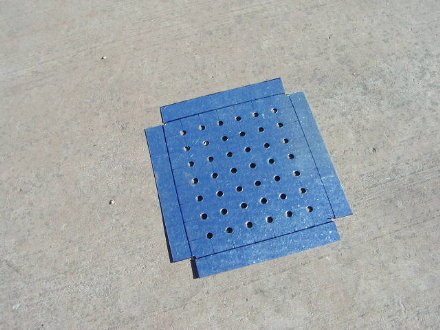 |
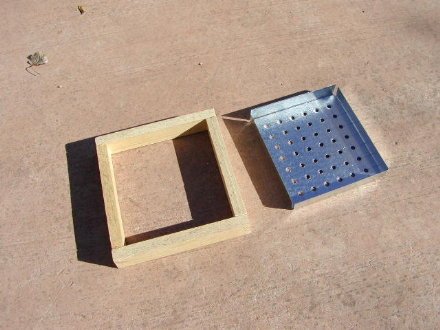 |
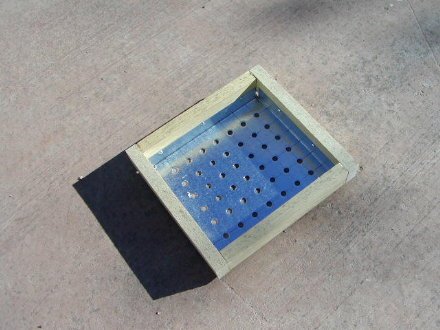 |
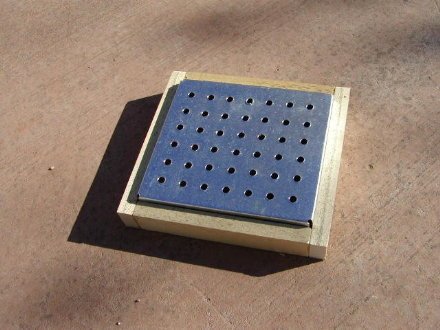 |
Next came the rock box just a few 1 x 2's and a small piece of galvanized
steel metal I had on hand. First I laid
out a punch plate and drilled the holes and cut the corners off. Then I
bent the sides so as to fit in the small wood
frame of the rock box. Made the rock box about 3/8 inch smaller than
top of rocker frame so it would slap back
and forth when rocked.
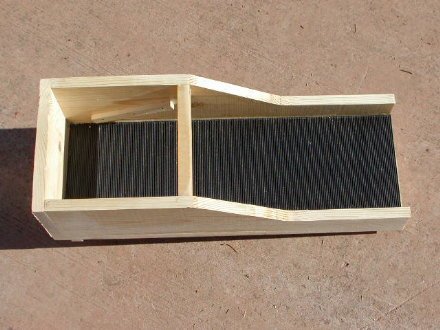 |
 |
Here it shows the black ribbed rubber mat I glued in the bottom of box.
I read where some of the original rockers
had nothing in the bottom but cloth so the mat should work very well. I
may add a couple very short riffles to it
at some point if I feel its necessary. I also read where some only had
one riffle at the end of the box. The bottom
shows how I got it to rock and remain centered at rest. The small board
up front lets it center up but gives a knock
knock effect which I hope helps it settle out more of that good gold.
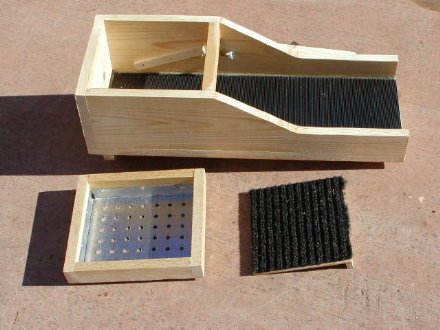 |
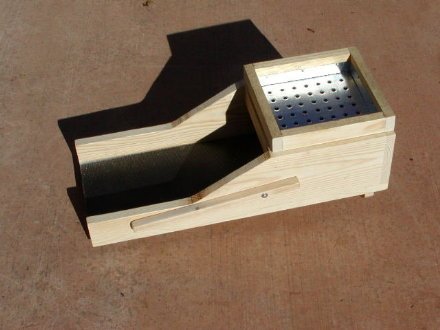 |
These are the inserts, the rock box, and carpeted riffle tray. This shows
the handle folded down for transport.
The handle could be mouned about anywhere you like it, I prefered it here
on the side in middle. The reasons,
center of mass weight of box, out of way of rock box and if I put it at
rear I would of needed two bolts
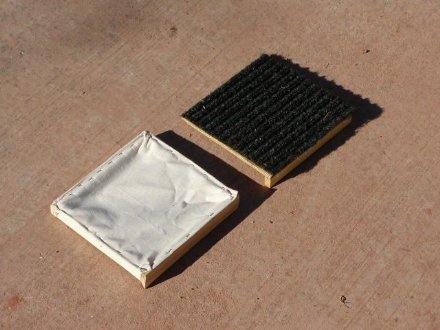 |
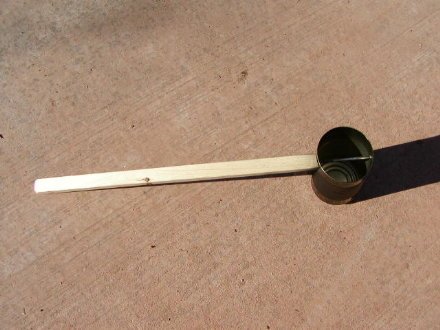 |
These are two riffle trays I built one like the old days and one modern
I've only tried the carpeted one so far and it
works very well. That is my water dipper made from a stick and bean
can with sheet rock screw through it.
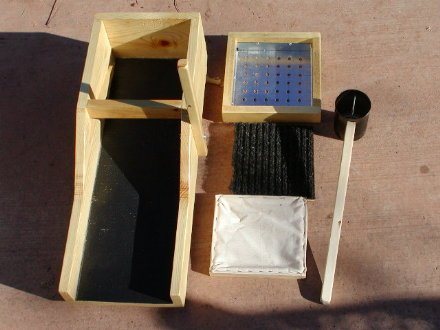 |
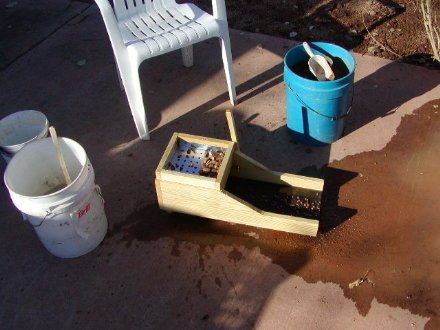 |
Here is the rocker with all the accessories including a spare old style
canvas riffle tray. This is the beginning of the test,
I keep a spare bucket of Gold Basin dirt/gravel for that purpose. I also
added 50 small various size gold flakes and
pickers to that bucket to make the test more interesting. My method of
operation was to rock it till the rock box gravel
bunched up at the lower end and reverse it and rock again letting the gravels
migrate to the lower end again then dump.
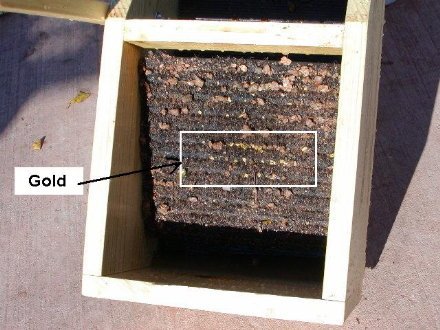 |
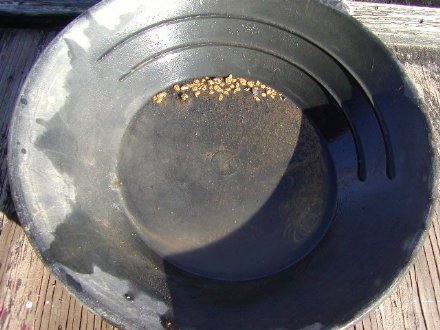 |
This is after the run with 90% of the gold in the outlined area. This is
the top riffle tray panned out, I counted 53 pieces
of gold. After cleaning out the lower board and the two side angle boards
I got 3 more. Now I know that is more than I
put in but this was unprocessed dirt from the Gold Basin. One thing
I will change is not so many holes in the rock box.
This would allow the water to pool up and help break up the clods a little
better, also slow down the flow through. All in
all though this is a good little machine for wet testing an area when the
water situation isn't so good.
